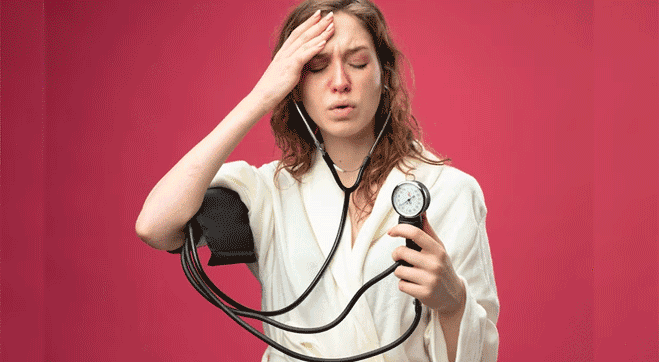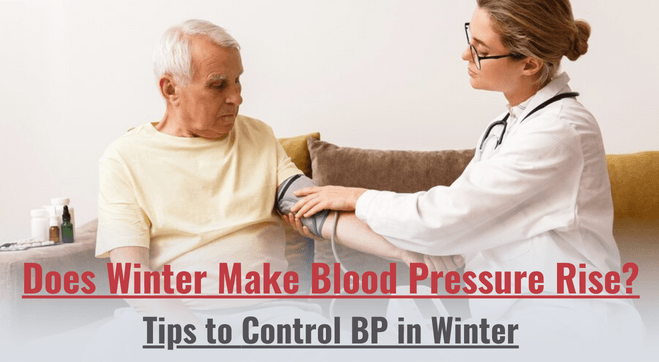What is Low Blood Pressure (Hypotension)?
Low blood pressure or hypotension is a condition in which your blood pressure reading is 90/60. While 90 is referred to as systolic pressure, which is the pressure exerted by our blood flow against the narrow arteries, diastolic pressure is regarded as the pressure against artery walls during periods of rest.
If you are wondering what happens when the blood pressure is too low, watch out for the signs of blurry vision, confusion, dizziness, lightheadedness and sleepiness. These are some of the key side effects of low blood pressure.
What is Considered Low Blood Pressure?
Low blood pressure by age is considered normal only when not associated with any underlying medical conditions and comorbidities. The normal Low BP range is 90/60. Anything below this low blood pressure range can be life-threatening.
Did you know:
- Orthostatic hypotension seems to be more and more common as you get older. An estimated 5% of people have it at age 50, while that figure climbs to more than 30% in people over 70
- The WHO estimates that 1.28 billion adults aged 30–79 years worldwide have hypertension, most (two-thirds) living in low- and middle-income countries
Types of Hypotension
Some of the key types of hypotension include:
- Orthostatic or Postural Hypotension – This is the most common type of hypotension that leads to a sudden drop in blood pressure when you stand up quickly from a sitting or a lying position. People of all ages are susceptible to this type of low blood pressure and it is caused due to ageing, and pregnancy too. Studies cite that 30 to 50% of people with Parkinson’s disease and 30% of people with Diabetes tend to have low BP.
- Postprandial Hypotension – A drop in blood pressure occurs after eating and it is more common in people with autoimmune dysfunctions.
- Neurally Mediated Hypotension – This type of hypotension is caused due to an abnormal reflex reaction between the heart and the brain. Standing in a position for too long or having a strong emotional reaction to shock or any situation can also cause neurally mediated hypotension.
- Severe Hypotension – It occurs as a response to extreme shock and can be life-threatening.
Hypotension Symptoms
The severity of low BP symptoms can vary widely from person to person and depends on several factors, including the underlying cause of the low blood pressure, the individual’s overall health, and how significant the drop in blood pressure is. In some cases, low blood pressure may not cause any noticeable symptoms, while in others, it can lead to more severe and noticeable effects.
Some of the key low blood pressure symptoms are:
- Fatigue
- Dizziness
- Nausea
- Clammy skin
- Unconsciousness
- Blurry vision
- Depression
While these are the major signs of low blood pressure, different individuals may experience hypotension symptoms differently.
What Causes Low Blood Pressure?
Understanding why blood pressure gets low is crucial to avoid health complications. Some of the key reasons for low BP or hypotension causes are:
- Pregnancy
- Impaired blood circulation due to heart attack or other cardiovascular malfunctions
- Extreme dehydration
- Certain endocrine disorders, such as diabetes
- Autonomic dysfunctions
- Shock
- Anaphylactic shock
- Excess blood loss
- Blood infections
- Medications, such as beta-blockers, nitroglycerin, diuretics, tricyclic antidepressants and medications for treating erectile dysfunction
Understanding what causes low blood pressure can help you seek the appropriate preventive and treatment interventions.
Who is at risk of low blood pressure?
Some of the key Hypotension risk factors are:
- Age – Elderly people above 65 years are more likely to have low BP symptoms
- Hypertension medications
- Parkinson’s disease, diabetes and other heart complications
Complications of Hypotension and Effects on the Body if Left Untreated
Low blood pressure when left untreated or unmanaged for too long may cause extreme cases of dizziness, lightheadedness, confusion and may even cause injury from falls.
When the blood pressure drops to dangerous levels, your vital organs might not function at full capacity, causing shock symptoms, such as clammy skin, rapid breathing, faster or irregular heartbeat.
Diagnosis Measures for Hypotension
Key diagnostic measures employed to diagnose low BP or hypotension include:
- At-home Blood tests to diagnose low and high blood sugar levels and anaemia as these tend to cause a drop in the blood pressure levels
- Electrocardiogram to gauge heart functionalities
- Tilt tablet test – Helps gauge your body’s reaction to changes in positions and postures.
Hypotension Management & Treatment Measures
There are no exclusive hypotension treatments. Most medical treatments aim at addressing the health concerns that might cause low blood pressure symptoms. And hypotension management usually involves making lifestyle changes.
Medical Treatment
Wondering what to do if blood pressure is too low? Consult your healthcare provider and communicate your low BP symptoms specifically. Your healthcare provider may recommend medications to bring your blood pressure to the normal range or offer treatment measures for other underlying conditions. You might also receive emergency treatment for shock that would have led to a sudden drop in blood pressure.
Home remedies and lifestyle strategies for Low Blood Pressure
Home remedies for low BP involves choosing healthier lifestyle choices, such as:
- Staying optimally hydrated at all times
- Understanding the stress triggers and navigating the way to keep these triggers at bay or minimising their impacts
- Incorporating a consistent exercise regimen into your daily routine
- Healthy eating habits that involve eating fresh fruits and vegetables
Leverage these low BP remedies to keep your blood pressure levels optimal at all times.
Here is what to eat when the BP is too low:
- Vitamin B-12 rich low BP foods, such as eggs, fortified cereals, animal meats, etc.
- Folate-rich foods, such as asparagus, beans, lentils, citric fruits, leafy greens, etc.
- Since in low blood pressure, the sodium content in the blood is less, your hypotension diet should include salty food items, such as canned soups, cottage cheeses, smoked fish and pickled olives, etc.
If you are wondering how to increase blood pressure immediately in an emergency, rush for medical attention. Trying to drink fluids rich in both sugar and salt content might also help. Caffeine intake is also known to spike blood sugar and blood pressure levels.
Other low blood pressure emergency treatments at home include consuming salty foods and fluids, wearing compression stockings, keeping your BP meds handy, etc.
A Note From HealthcareOnTime
Low BP or high BP, which is more dangerous – this is a common query. So, any fluctuations in blood pressure beyond the normal range are not good. Low blood pressure below 90/60 reading and high blood pressure beyond 180/120 reading are deemed extremely dangerous and life-threatening. It is recommended to watch out for low BP symptoms, understand low BP causes, what implications low blood pressure by age might have, seek the right hypotension treatment and leverage home remedies for low BP to keep blood pressure levels in check.
HealthcareOnTime is your go-to destination for blood tests to assess your conditiones like heart health, kindney and lungs health including other health conditions. Stay informed; stay vigilant! Leverage the test results and insights to avoid, manage and treat low blood pressure optimally.
Disclaimer: The information listed here is strictly for educational purposes and is not intended to offer personal medical advice. Do consult your physician for any questions you may have regarding a medical condition. It’s not advised to disregard professional medical advice or delay in seeking it because of any information listed here. The Nutrition Source does not recommend or endorse any products.
Sources
Ref Links:









